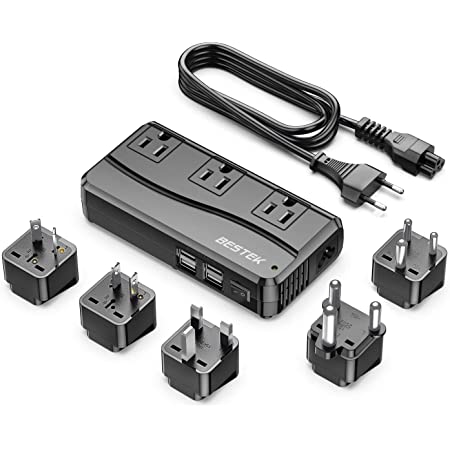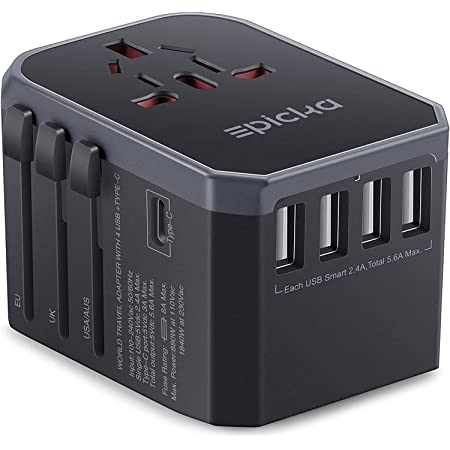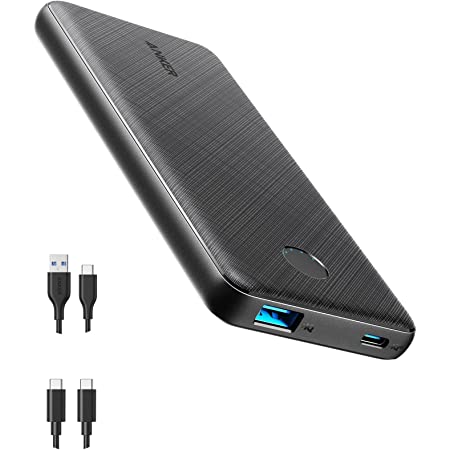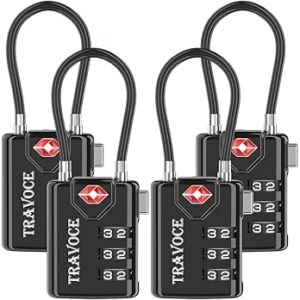Plug For Honduras: What You Need To Know
What is the plug for Honduras? Before you travel, check the information below to make sure your electronic devices are compatible with the outlet type and voltage.
Electrical Summary
Plug Compatibility: Type A, Type B
Voltage: 110V – 120V
Frequency: 60 Hz
Type A

Type B

Can North Americans use Electronics in Honduras without an Adapter?
Yes! North Americans do not need a travel adapter or transformer when traveling to Honduras. Most device plugs will work with the outlet types in Honduras. Also, the voltage in Honduras is the same as in North America.
Please note: an adapter will be needed if your device plug has a grounding pin and you are trying to use a Type A outlet. For this reason, we always recommend traveling with a universal travel adapter.
Can Europeans use Electronics in Honduras without an adapter?
No! Europeans will need an adapter for the outlets and a transformer for the voltage when traveling to Honduras. European device plugs will not work with the outlet types in Honduras. Also, the voltage in Honduras is different from European voltages.
What Outlet does Honduras Use?
Type A

Type A electrical plug sockets are used in North and Central America, including the United States, Canada, and Mexico. They have two flat pins and no grounding pin. These outlets are typically used with devices that have a voltage of 110-120V. This outlet is rated for 15 amps. Plug Type A is compatible with this socket. All other plug types (including Type B) will need an adapter.
Type B

Type B electrical plug sockets are used in North and Central America, including the United States, Canada, and Mexico. They have two round pins and a grounding pin. These outlets are typically used with devices that have a voltage of 110-120V. This outlet is rated for 15 amps. Plug Type A and Type B are compatible with this socket. All other plug types will need an adapter.
Recommended Products:
Should I use a VPN when traveling?
YES! Using a VPN when traveling is highly recommended to protect your online privacy and security. Public Wi-Fi networks in hotels, airports, and cafés are often unsecured, making you vulnerable to hackers and data theft. A VPN encrypts your internet connection, safeguarding sensitive information like passwords and banking details. It also allows you to bypass geo-restrictions, granting access to streaming services and websites that may be blocked in certain countries. Additionally, a VPN helps prevent government surveillance and ISP tracking. For a seamless and secure browsing experience while traveling, choose a reliable VPN with fast speeds and strong encryption.
Honduras Travel Essentials:
Is it safe to drink water in Honduras?
It is generally not safe to drink tap water in Honduras. Many areas, especially in rural and less developed regions, may not have access to safe, treated water. It is recommended to stick to bottled water or a filtered water bottle, when it comes to drinking and brushing your teeth, or using a water filter or purifying tablets.
Also, be aware that ice in drinks can also be made from tap water, so be careful with drinks that are served with ice.
It’s important to note that the water situation can vary by region and can change frequently, so it is best to check with local authorities or tour guides for the most current information about the safety of tap water in a particular area.
We recommend always packing a filtered water bottle when traveling!
Travel Essentials
Be sure to check our list of travel essentials before your trip!
Should I get travel insurance when traveling to Honduras?
It is generally recommended to get travel insurance when traveling to a different country. Travel insurance can provide financial protection and peace of mind in case of unexpected events, such as medical emergencies, trip cancellations, lost or stolen baggage, or other travel-related mishaps.
Travel insurance can cover various expenses related to your trip, such as medical expenses, emergency medical transportation, trip cancellation or interruption, lost or stolen baggage or personal belongings, and other travel-related expenses.
Before purchasing travel insurance, it’s important to carefully review the policy details, including the coverage limits, exclusions, and any applicable deductibles or copays. You should also make sure that the policy covers any activities or destinations that you plan to participate in or visit during your trip. Click here to price for Travel Insurance for Honduras
Travel Summary
One of the main draws of Honduras is its ancient Mayan ruins. The most famous of which is Copán, a UNESCO World Heritage Site located in the western part of the country. The site is home to impressive pyramids and temples that provide a glimpse into the past and the culture of the Mayan civilization. Visitors can take guided tours of the site and learn about the history and significance of the ruins.
Honduras is also home to beautiful natural landscapes, including lush rainforests, and impressive waterfalls. The Pico Bonito National Park, located in the northwest of the country, is known for its breathtaking views and diverse wildlife. Visitors can go hiking, bird watching, and explore the natural beauty of the park.
The culture of Honduras is another aspect that draws visitors. The country is known for its vibrant traditional textiles, which are often brightly colored and feature intricate designs. Visitors can explore local markets and shop for traditional textiles, pottery, and other handcrafted items.
Honduras is also home to a number of charming colonial towns, including Tegucigalpa, the capital city, and Comayagua. These towns are known for their well-preserved Spanish colonial architecture and traditional markets. Visitors can explore the streets, take in the sights and sounds, and shop for souvenirs.
When planning a trip to Honduras, it’s important to keep in mind that the country has a tropical climate, with rainy seasons in some regions. The best time to visit would be during the dry season, which is typically between November and April.
Overall, Honduras is a destination that offers a wide range of experiences for travelers. With its ancient Mayan ruins, beautiful natural landscapes, vibrant culture, and charming colonial towns, there is something for everyone to enjoy. When planning your next trip, consider adding Honduras to your itinerary for an unforgettable experience.
It’s worth noting that Honduras has a relatively high crime rate, it’s recommended to take caution, stay in well-traveled areas and to be aware of your surroundings at all times. It is also important to be aware of the political and social situation in Honduras and to check for travel warnings before planning your trip.
Traveling to another country? Check out our Countries page for more info on countries like Guatemala, El Salvador, Belize, Nicaragua, Costa Rica, Panama





